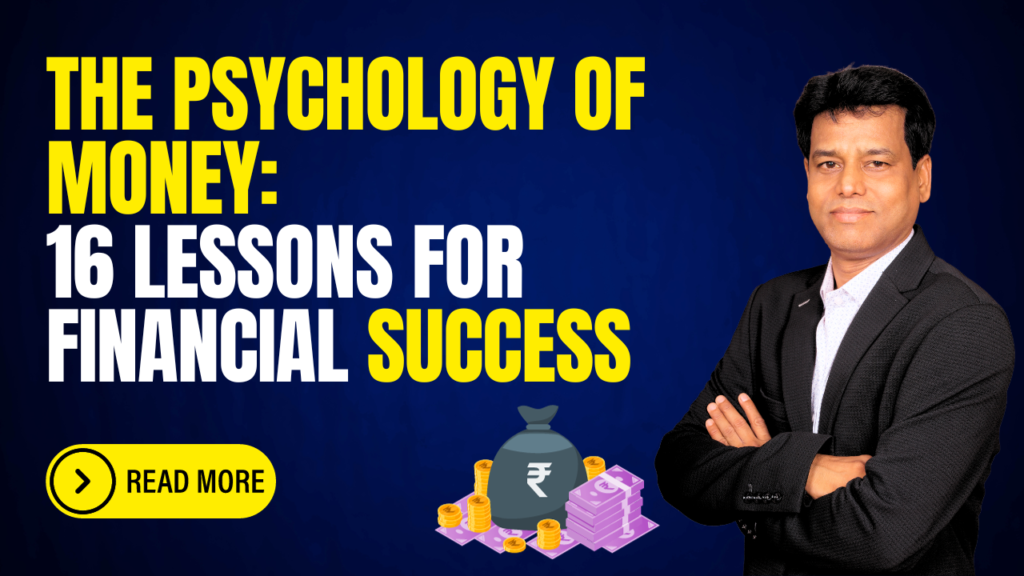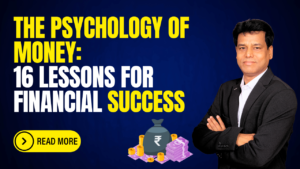Investigate the captivating domain of the brain research of money and find 16 significant examples that can change your monetary excursion. Figure out the close to home perspectives, predispositions, and propensities that shape our monetary choices, and figure out how to go with informed decisions for long haul thriving.
Money isn’t simply money; it’s a complicated trap of feelings, predispositions, and ways of behaving that impact our monetary choices. Understanding the brain research of money can open the key to monetary achievement and empower us to use wise judgement that line up with our objectives and values. In this article, we dig into the captivating universe of the brain science of money, featuring 16 significant illustrations that can engage you to assume command over your funds and construct a prosperous future.
1. Emotions and Money:
Disclosing the many-sided association among feelings and monetary choices, we investigate what our sentiments mean for our spending, saving, and contributing ways of behaving. Figure out how to really explore the profound territory of money the executives.
2. Time: The Money of Abundance:
Find the influence of compounding and the meaning of beginning early. We examine what time means for our monetary development and why persistence is an excellence with regards to creating financial stability.
3. Abundance Mindset vs. Scarcity Mindset:
Developing an overflow outlook opens up new open doors for monetary development, while a viewpoint that everything is limited can prevent progress. Uncover how to move your mentality and embrace a more sure and bountiful point of view toward money.
4. The Habit Loop:
Outfit the force of propensities to develop areas of strength for an establishment. We dig into the science behind propensity arrangement and give reasonable tips to creating sound monetary propensities that lead to long haul achievement.
5. Breaking Free from Social Comparison:
Correlation can be negative to our monetary prosperity. Find systems to defeat the desire to contrast yourself with others and spotlight on your extraordinary monetary objectives.
6. Understanding Loss Aversion:
We investigate the mental inclination that makes us dread misfortunes more than we value gains. Figure out how to pursue level headed monetary choices by understanding and moderating the effect of misfortune repugnance.
7. Anchoring Bias:
Find how our underlying reference focuses or secures impact our monetary direction. We give experiences on the most proficient method to try not to be moored and pursue informed decisions in light of a complete view.
8. The Craft of Postponed Delight:
Deferred satisfaction is a strong expertise for building monetary dependability. We examine techniques for dominating discretion and opposing indiscreet spending to accomplish long haul monetary objectives.
9. The Importance of Financial Literacy:
Improve your monetary information to go with informed choices. We feature the significance of monetary education and give assets to assist you with extending how you might interpret an individual budget.
10. The Role of Self-Control:
Discretion assumes a vital part in monetary achievement. Investigate methods to reinforce your self-restraint and oppose enticements that could wreck your monetary plans.
11. Money and Happiness:
While money can give solace, it doesn’t ensure joy. We dive into the connection among money and prosperity, accentuating the significance of equilibrium and adjusting monetary objectives to individual satisfaction.
12. Unravelling Behavioural Biases:
Gain consciousness of normal predispositions, for example, tendency to look for predetermined feedback, pomposity, and group attitude, and figure out how to moderate their impact on your monetary independent direction.
13. Managing Financial Stress:
Monetary pressure can negatively affect psychological well-being. Find systems for overseeing monetary pressure, defining practical objectives, looking for help, and keeping up with by and large prosperity.
14. The Power of Diversification:
Differentiating your ventures oversees risk and safeguard your riches. Become familiar with the advantages of enhancement and how to make an even speculation portfolio.
15. Understanding Opportunity Cost:
Investigate the idea of chance expense and its importance to monetary direction. Find how to assess compromises and pursue decisions that line up with your long-term objectives.
16. Money as a Tool for Purpose:
View money as a way to help your interests, have a constructive outcome, and make a satisfying life. Adjust your monetary decisions to your qualities and seek after a reason driven way to deal with riches.
Addressing Common Concerns: FAQs
Q: Is insurance necessary if I already have an emergency fund?
A: While an emergency fund is crucial, insurance provides a broader safety net for unexpected events, ensuring your financial stability isn’t compromised.
Q: Can insurance help with estate planning?
A: Absolutely. Life insurance can play a pivotal role in estate planning, facilitating the seamless transfer of assets to beneficiaries.
Q: Are there instances where insurance may not be necessary?
A: Dr. Samaddar suggests that insurance should align with individual circumstances. For instance, if you have ample savings to cover unforeseen expenses, insurance might play a lesser role.
Q: How can I determine the right insurance coverage?
A: Dr. Samaddar advises a comprehensive evaluation of your financial goals, responsibilities, and risk tolerance. Seeking professional guidance can help tailor coverage to your needs.
Q: Can insurance aid in tax planning?
A: Yes, certain insurance products offer tax advantages. For instance, contributions to retirement insurance plans can result in tax benefits.
Q: How does insurance contribute to a holistic financial plan?
A: Insurance complements a holistic financial strategy by providing protection against risks that can disrupt your financial goals. It ensures that unforeseen events don’t impede your progress.
Conclusion:
The brain research of money gives significant experiences into our monetary ways of behaving and dynamic cycles. By figuring out the close to home viewpoints, predispositions, and propensities that shape our relationship with money, we can pursue informed decisions for long haul monetary achievement. Embrace these 16 illustrations and leave on an excursion towards a better, more prosperous monetary future.


